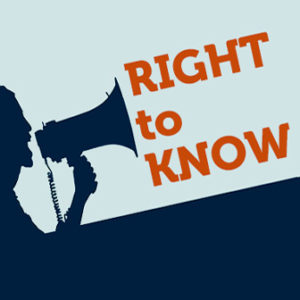The right to know
Today is the International Day for Universal Access to Information, significant for us in Pakistan, given that the right to information is denied to many people here – despite the many laws, including Article 9 of the Pakistan constitution, which defend the right to information for all citizens. The country is already low in rankings regarding digital freedoms. In the face of increasing pressures on those whose job it is to bring information to the people – journalists, all those who make policies should be aware that it is almost impossible to restrict information in this day and age. Doing so simply causes further harm. We need to give our people as much information as possible, while teaching them how to filter out fake news through the various websites and other forums which exist for this, so that they can be properly informed and able to make decisions accordingly.
The just-passed National Newspaper Readership Day (September 25) reminds us that, though rumour factories have been churning out fake news and sensational narratives, newspaper editors have done their job by advancing confirmed stories to counter baseless propaganda and concocted ‘facts’. As the world is increasingly becoming addicted to electronic gadgets in nearly everybody’s hands, there is a constant stream of all sorts of news bombarding our eyes and ears 24/7. People are also faced with a challenge to distinguish between what to believe and what not to trust. Such is the impact of mischievous reports that societies now find themselves at the mercy of hate and violence triggered by exaggerated reports of otherwise minor and negligible events.
In this scenario it is imperative that a dynamic press play its role and governments and states around the world facilitate journalism that finds itself beset by numerous threats. It is significant that newspaper readership is still there, though a bit diminished due to unfavourable circumstances prevailing in this age of populism and populist leaders who are bent upon destroying freedom of expression in many countries of the world. The recent attempts by the PTI government in Pakistan to introduce a controversial Pakistan Media Development Authority (PMDA) law is a case in point. The people’s right to access to information also places a huge responsibility on the shoulders of the government to ensure uninterrupted advancement of information rather than curbing its flow under various guises. A free and reliable press thrives when there is security for media professionals. This security is not only physical; it is also economic and the financial stability of newspapers can help journalists maintain their intellectual integrity. Newspapers, as they say, are the first record of history; there is a need to ensure preservation of this record – which is an essential part of the right to information as guaranteed to every citizen in the country.
Source: The News (Editorial)

